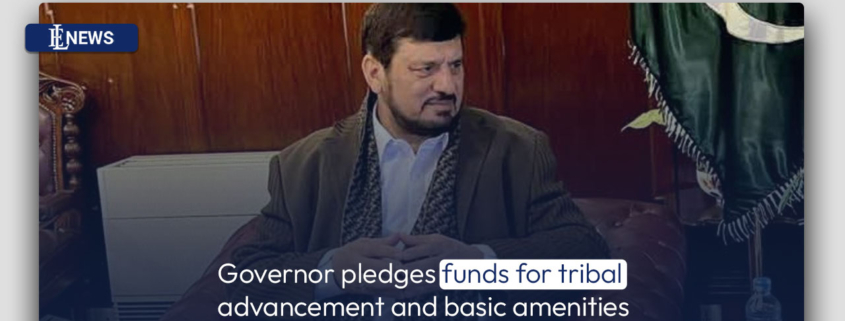Governor pledges funds for tribal advancement and basic amenities
Haji Ghulam Ali, the Governor of Khyber-Pakhtunkhwa (K-P), reaffirmed his commitment to providing tribal communities with basic amenities on Wednesday in London.
Read more with EL news: Maps and building plans cannot be approved in Sindh, according to LG
He announced the release of funds to local government representatives, a move intended to jumpstart development initiatives at the grassroots level.
He acknowledged the tribal people’s sacrifices for the nation’s sovereignty while highlighting the significance of peace for progress.
A delegation of 45 tribal elders from Tehsil Shagai, South Waziristan, met with the governor. This group, commanded by former provincial assembly member Adnan Wazir and Tehsil Wana Chairman Moulana Saleh, conveyed their concerns to the KP Governor.
Despite the fact that Shagai was granted tehsil status in 2012, a formal notification has not yet been issued, causing complications.
In addition to urging the governor to intervene in this matter, the delegation brought up a number of other urgent concerns. These included the establishment of a NADRA office in the region, the rehabilitation of infrastructure, the blacktopping of roads in Mantoai and Santoi, the construction of a hospital in the vicinity of Shagai, and the fulfilment of water supply and sanitation projects.
The governor responded by offering his complete cooperation in resolving these issues. He emphasized that the development of tribal regions remains a government priority. To address the NADRA office issue, he assured the delegation that NADRA officials would be contacted to deploy a mobile registration vehicle for Shagai until a permanent office is established.
Ghulam Ali also urged tribal elders to make education a priority for their offspring, including their daughters. He mentioned ongoing scholarship programs for students from districts that have merged in an effort to increase their participation in regional development and provide higher education opportunities.



